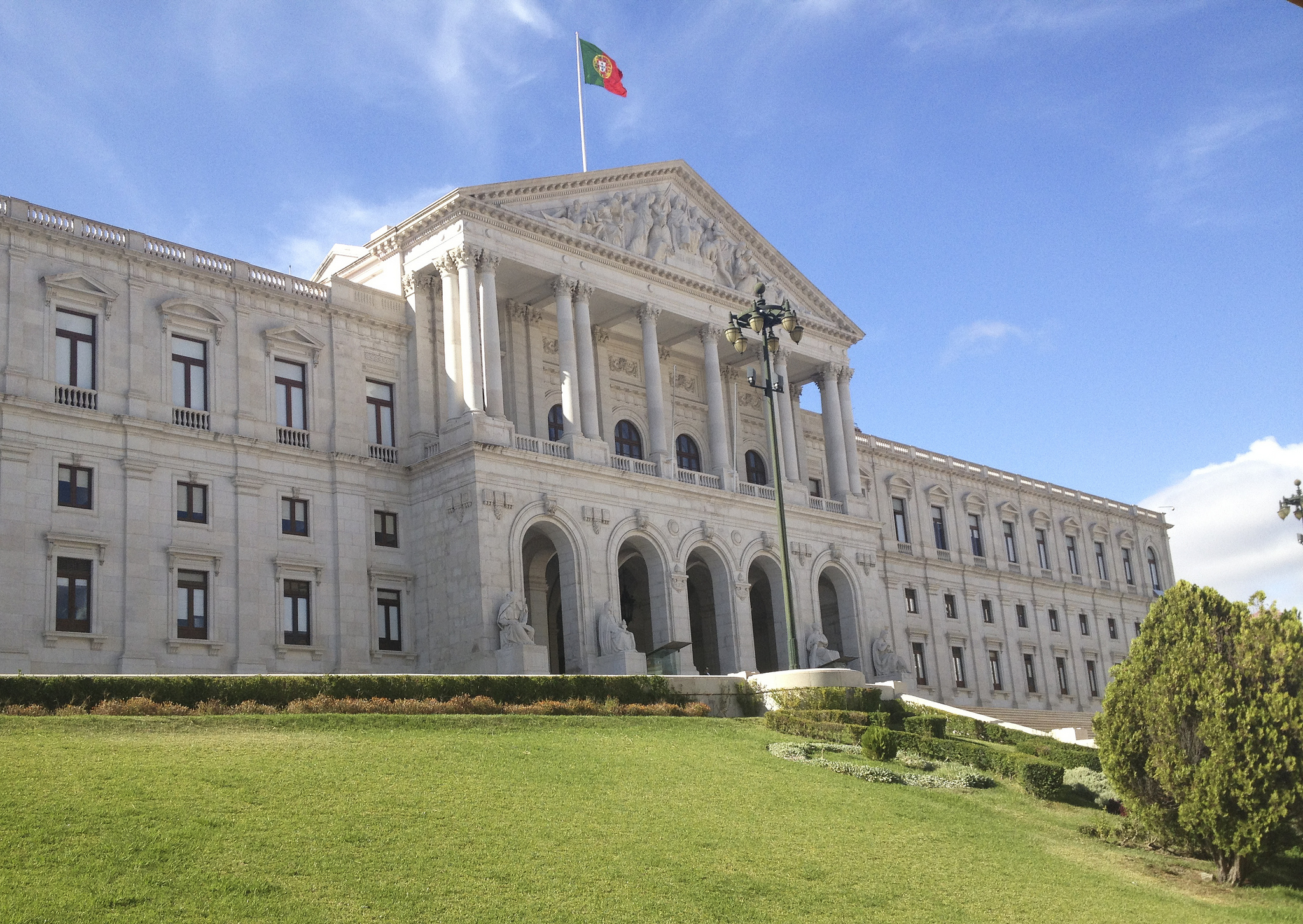
The election results of 4 October produced a difficult political situation in Portugal. As Craig McVegas and Joana Ramiro have already reported, the left has a majority in parliament, but the right-wing coalition won the most votes. Since their article, the tables have unexpectedly turned and a left-wing coalition government now seems like the most likely outcome of a week packed with negotiations.
Open interpretations, obvious differences.
In the aftermath of the defeat of the Socialist Party (PS) on Sunday, its leader, António Costa, announced he would stay true to his manifesto pledge of breaking with austerity, but that he would not form a ‘negative coalition’. To disbelievers in a left-wing coalition, that meant PS would limit itself to negotiating concessions from the right-wing PàF coalition.
Yet what stood out was Costa’s defiance of the establishment’s chorus for political stability. In hindsight, it’s clear his rejection of ‘negative coalitions’ was a warning to far-left parties that the responsibility was with them: either be part of the solution or assume your role in continuing a right-wing government.
These open-ended messages were continued last week when PS’s political committee met. After hours of negotiation, Costa left the room with a statement promising to negotiate with all parties. Despite some vocal opponents, the statement had only a couple votes against and abstentions.
Rounds of negotiations, rounds of messages.
As the week progressed, so did negotiations for a government. Marking a tectonic shift in Portuguese politics, on Wednesday the Communist Party (PCP) abandoned its historic unwillingness to enter government, saying it would vote down any vote of no confidence brought forward by the right. Costa agreed, wanting to give “institutional expression” to the parties’ common “will to change.”
This sounded an alarm across both the establishment and the Left Bloc (BE). BE hadn’t believed PS would try to form a left-wing government. Previously unprepared for negotiations that were anything more than a façade, BE delayed its meeting with PS until Monday. Meanwhile the establishment thunderously wrote articles against Costa, seeking to delegitimate a government led by the second placed party.
On Friday PàF and PS met, but neither was willing to show its hand: each had expected the other to come forward with proposals. Costa was clear that the meeting was inconclusive; PàF made a pledge to make a first offer over the weekend, but no document was ever sent. A pledge made, a pledge broken – nothing new or surprising.
Regardless of this document, it was clear to the public António Costa had already decided to form a left-wing government. He brought a left-wing MP, Pedro Nuno Santos, with him to negotiation talks. Many PS grandees have come out in favour of a coalition with PCP and BE: from parliamentary leader Ferro Rodrigues, to former ministers, and even NEC members Porfírio Silva and Pedro Bacelar Vasconcelos. By contrast, on Saturday another NEC member, Sérgio Sousa Pinto, resigned in disagreement with the possibility of a left-wing coalition government.
Two hours of talks with PS were enough for Catarina Martins, leader of the Left Bloc, to declare the end of the right-wing government, announcing BE had found the conditions to form a government and pass a first budget. This left-wing unity coalition is almost agreed to and signed, and Costa has delayed further talks with PàF.
Many possibilities: the roadmap ahead.
Yesterday ended with a meeting between António Costa and President Anibal Cavaco Silva, where Costa presented his intentions to form a government platform with BE and PCP. While we don’t yet know Cavaco’s answer, we do know Costa reassured him that a left-wing government to honour Portugal’s external commitments.
In a speech to the country on Tuesday, Cavaco excluded BE and PCP from government negotiations on the basis that they are against EU, Eurozone and NATO membership. Costa’s move therefore seeks to give Cavaco no reason not to appoint him prime minister, should talks conclude successfully.
If Cavaco insists, he could still appoint the PàF leader, Pedro Passos Coelho, prime minister and hope that internal pressures force PS to bend and approve the government agenda and first budget. Already, the cracks are visible. If the 15 MPs of the right-wing ‘Segurista’ faction should rebel, Passos Coelho may yet find himself a majority from among PS’s disunity.
However, if Costa’s left-wing coalition holds through the tribulations of the internal party democracy, the most likely outcome is that PS will vote down the coalition’s agenda and budget. At that point, Cavaco’s only choice will be to appoint a left-wing government.
Challenges for a left-wing government.
Cavaco is, however, only one of many hurdles to the success of a left-wing government. The first, and probably most difficult, is uniting PS to achieve this. Members and especially MPs, who are very divided, will have to vote on the coalition in an internal referendum. Even then, without the loyalty of all Socialist MPs to achieve a majority, Costa’s left-wing government could be nothing more than a dream.
A second challenge is the cohesion of the coalition itself. PCP and BE have never been in an elected government, and they may well fall out with PS sooner rather than later. If so, the right will say ‘I told you so’ and PS will likely pin any failures on its former coalition partners, victimising itself. Which of the scenarios wins out will determine who gains from this democratic experiment – capital or workers.
–
Novara Media is trying to raise £10k in just 30 days. To support our mission to create media for a different politics, go to support.novaramedia.com. Help us spread the word using the hashtag #Novara10k!